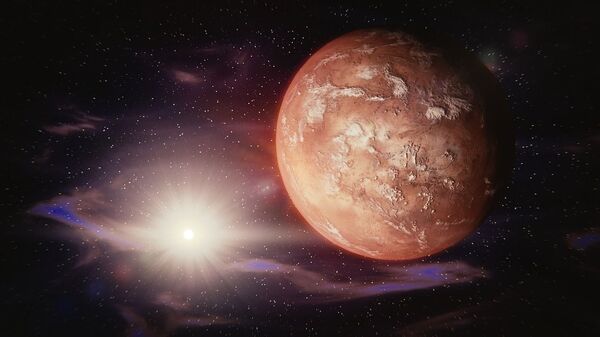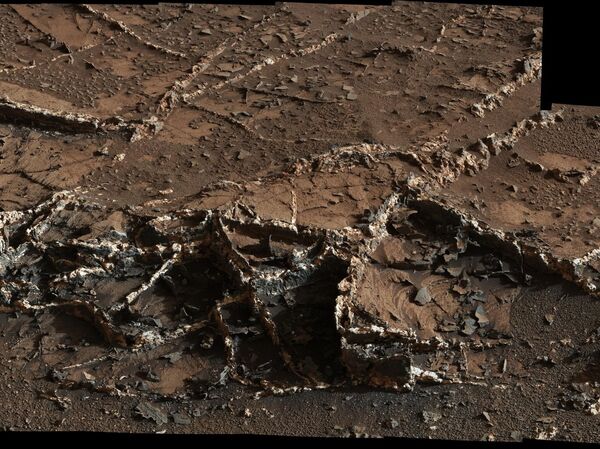An international team of researchers has found new evidence for the existence of water on Mars when analysing a meteorite found in the Sahara Desert in northwest Africa back in 2012, according to their study published on the Science Advances website.
The so-called NWA 7533 meteorite with a mass of 84 grams was part of a celestial rock that disintegrated upon entering the Earth's atmosphere.
After exploring the mineral composition of the meteorite, scientists registered signs of oxidation which they suggested could have taken place when water formed on the Red Planet's surface.
One of the study’s authors, Professor Takashi Mikouchi from the University of Tokyo, pointed out in the research that “this oxidation could have occurred if there was water present on or in the Martian crust 4.4 billion years ago during an impact that melted part of the crust”.
“The analysis also suggests such an impact would have released a lot of hydrogen. [This] would have contributed to planetary warming at a time when Mars already had a thick insulating atmosphere of carbon dioxide”, he added.
The research comes a few months after a study published by the journal Nature claimed that Mars is wetter than previously thought, but not in a way that would increase its potential for hosting life.




